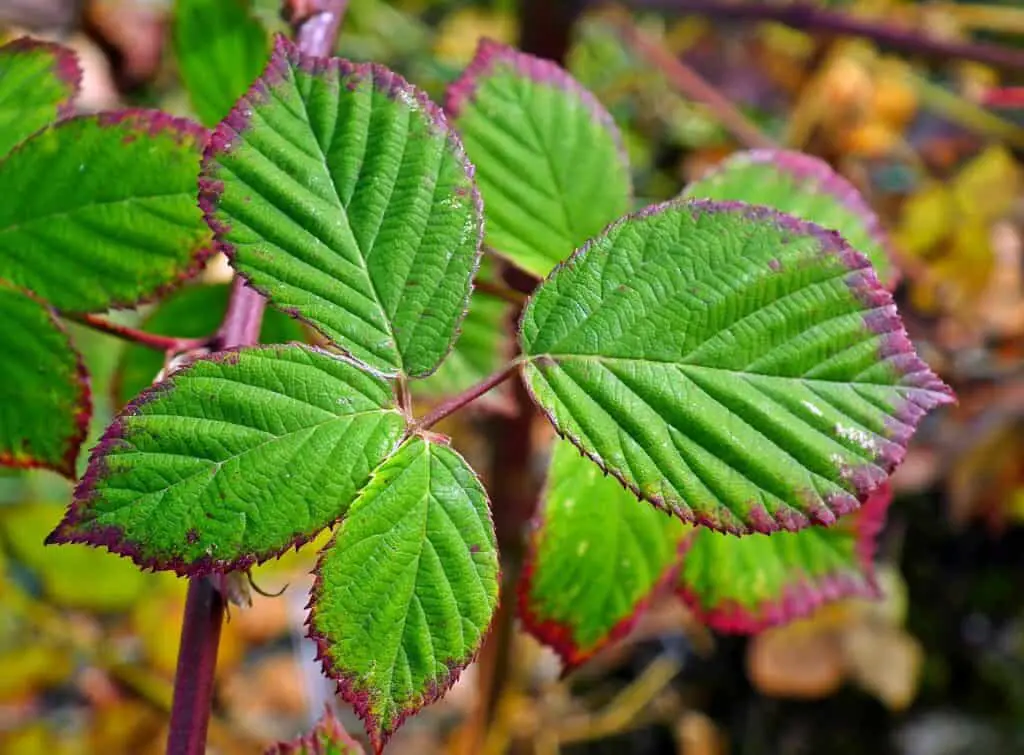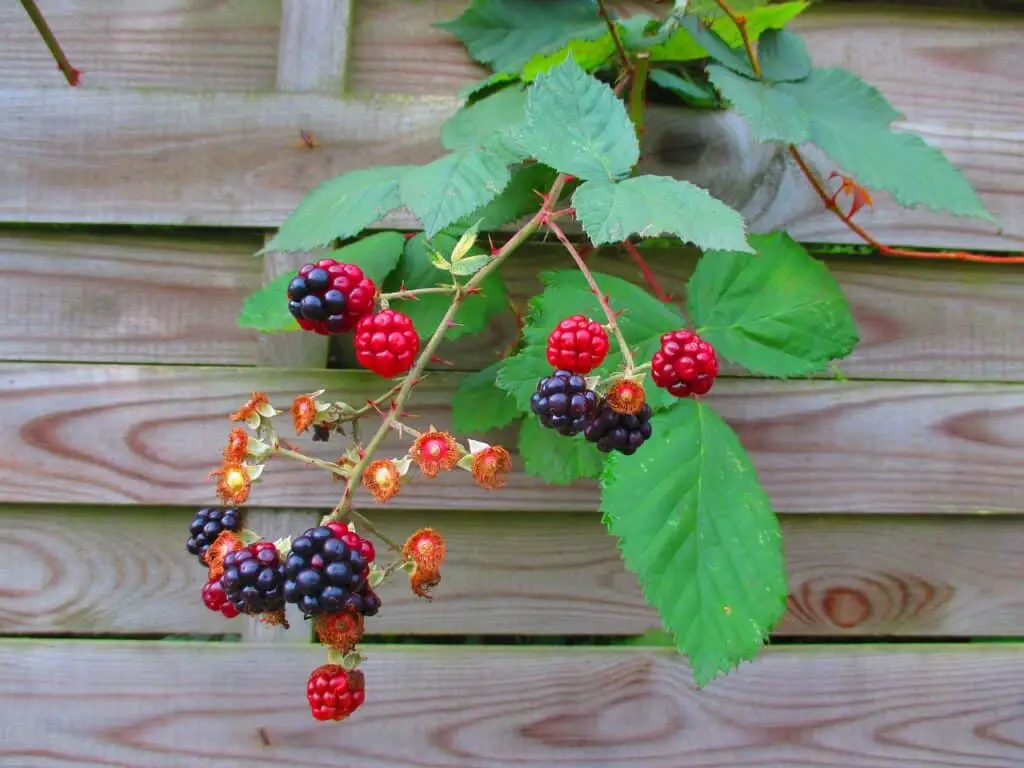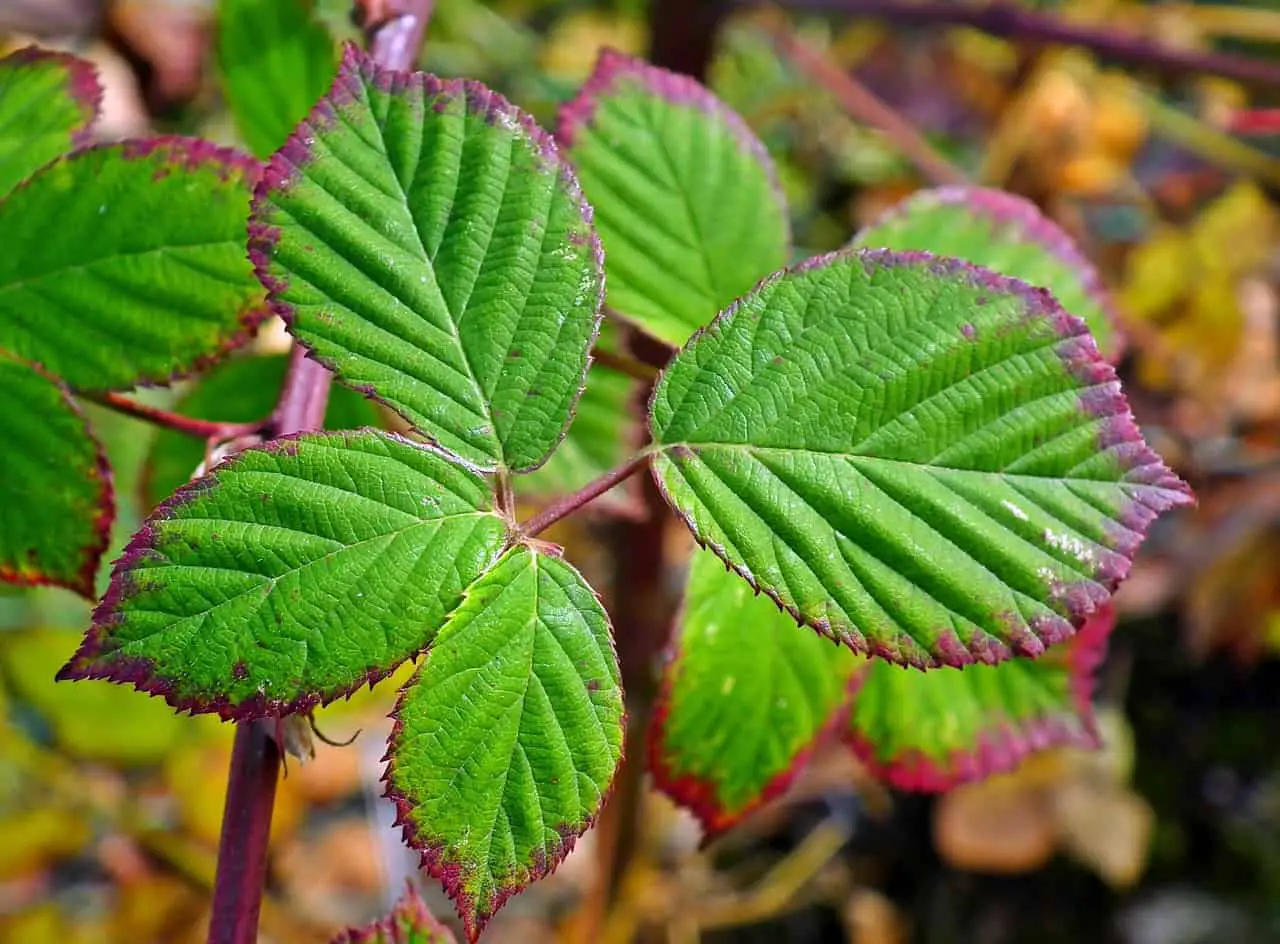Blackberry leaves, often overlooked, have garnered attention for their potential benefits, especially when smoked. This article delves into the intriguing realm of blackberry leaf smoking benefits, as well as shedding light on harvesting practices for tea and the advantages these leaves offer for skincare.
Blackberry leaves, often overshadowed by the allure of their juicy berries, hold their own set of unique qualities. These leaves, characterized by jagged edges and a deep green hue, contribute to various aspects of holistic well-being. Rich in antioxidants and tannins, blackberry leaves are popularly utilized in herbal teas, showcasing potential health benefits. Some enthusiasts explore their potential in smoking practices, attributing calming effects to the experience. Beyond consumption, blackberry leaves are known for their skincare potential, with antioxidant and anti-inflammatory properties. While not as celebrated as the berries, blackberry leaves offer a diverse range of applications, adding a nuanced layer to the world of herbal exploration.

Blackberry Leaf Smoking Benefits
Smoking blackberry leaves is a practice that has gained popularity, with enthusiasts attributing various benefits to this unique habit. Some claim that smoking blackberry leaves may offer a calming and relaxing experience, akin to other herbal smoking alternatives. The leaves, when dried and prepared appropriately, are believed to emit a mild, earthy aroma. It’s essential to note that while some individuals find satisfaction in this practice, scientific evidence supporting specific health benefits is limited. As with any smoking-related activity, moderation and awareness of potential risks are crucial.
When to Harvest Blackberry Leaves for Tea
Harvesting blackberry leaves for tea involves careful consideration of timing to ensure optimal flavor and potency. The best time to harvest blackberry leaves is during the spring and early summer months when the plant is in its vegetative growth stage. Choose young, vibrant leaves for harvesting, as they tend to have a milder flavor. Avoid harvesting during or after flowering, as the leaves may become bitter. Gently pluck the leaves, ensuring not to strip the plant entirely, allowing for regrowth. Once harvested, the leaves can be air-dried or used fresh to create a flavorful and aromatic blackberry leaf tea.
Blackberry Leaves Benefits for Skin
Beyond their potential for smoking and tea, blackberry leaves offer benefits for the skin. The leaves contain compounds with antioxidant and anti-inflammatory properties, making them a potential addition to skincare routines. Some enthusiasts use blackberry leaf infusions or extracts topically, attributing benefits such as soothing irritated skin, reducing inflammation, and promoting overall skin health. However, individual responses may vary, and it’s advisable to perform a patch test before incorporating blackberry leaf-based skincare products.
Blackberry Leaf Tea Side Effects
While blackberry leaf tea is generally considered safe for consumption, there are potential side effects to be aware of. Excessive consumption may lead to stomach upset or diarrhea due to the tannin content in the leaves. Additionally, individuals allergic to plants in the Rosaceae family (which includes blackberries) should exercise caution. Pregnant or breastfeeding individuals should consult with a healthcare professional before consuming blackberry leaf tea to ensure its safety for their specific situation.

FAQ
Can smoking blackberry leaves be harmful?
While some individuals find enjoyment in smoking blackberry leaves, it’s important to approach this practice with caution. Smoking, in any form, poses inherent risks to respiratory health. Limited scientific research exists on the specific health effects of smoking blackberry leaves, emphasizing the importance of moderation and mindfulness of potential risks.
Are there other uses for blackberry leaves besides smoking and tea?
Indeed, blackberry leaves have various applications. They can be used in herbal infusions, tinctures, or as a flavorful addition to salads. Additionally, some explore the leaves’ potential benefits in alternative practices like smoking. The versatility of blackberry leaves extends beyond their culinary use, providing opportunities for diverse herbal experiences.
Conclusion
In the world of herbal exploration, blackberry leaves emerge as a multifaceted resource, offering potential benefits in smoking practices, tea preparation, and skincare. While some praise the calming effects of smoking blackberry leaves and appreciate the flavorful tea they produce, it’s essential to approach these practices with a mindful understanding of individual responses and potential side effects. Whether enjoyed as a calming smoke, a soothing tea, or an ingredient in skincare, blackberry leaves add a unique dimension to the tapestry of herbal experiences.

